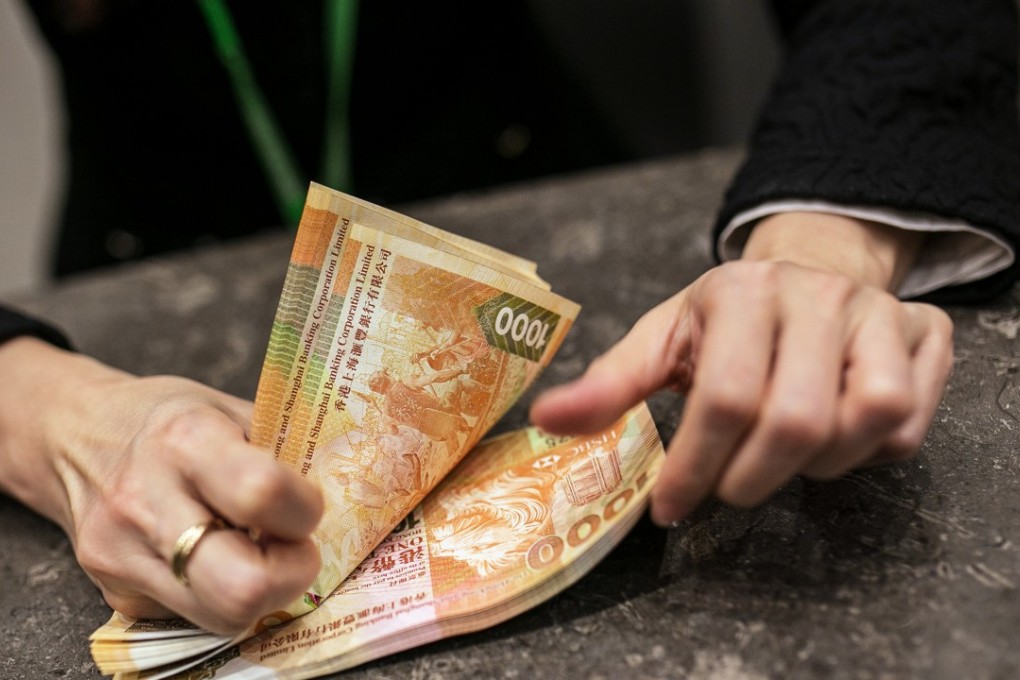Hong Kong Monetary Authority intervenes in currency market for first time since May
De facto central bank steps in to defend the Hong Kong dollar, as breaking point looms where city’s banks could feel pressure to raise home mortgage rates.

Hong Kong’s de facto central bank said it has stepped in the foreign currency market to defend the Hong Kong dollar for the first time since May, bringing a key property loan interest rate closer to a tipping point.
The Hong Kong Monetary Authority bought HK$2.159 billion and sold US$275 million as the Hong Kong dollar hit the 7.8500 per US dollar level, during New York trading hours at 5am Wednesday Hong Kong time, and bought a further HK$2.355 billion to sell US$300 million in Hong Kong on Wednesday afternoon.
The combined intervention is expected to withdraw banking liquidity, reducing the city’s aggregate balance to about HK$104.69 billion. Under its currency board system, the HKMA is obliged to keep the local currency within a trading range between 7.75 to 7.85 per dollar. The Hong Kong dollar remained at 7.8500 against the US dollar as of 5:30pm.
Depreciation pressure on the local currency was exacerbated in recent days as the Turkish lira crisis roiled equities and currency markets around the world, leading traders and investors to offload emerging market and Asian assets while buying the US dollar safe-haven assets.
The deteriorating sentiment could prompt further intervention by the monetary authority, and continue shrinking banking liquidity. The aggregate balance is currently down 40 per cent from HK$180 billion in April, when the HKMA first stepped in the market to support the local currency and started tightening the amount of dollars in circulation.
Many analysts believe that if the aggregate balance level falls below HK$100 billion, Hong Kong interest rates would become more sensitive. That would pressure commercial banks to raise their prime rates, leaving existing homeowners with higher mortgage payments. Most property loans in Hong Kong are linked to Hibor rates or to prime rates, which are set by banks.